Because You Asked: How Can We Protect our Family Members from Financial Fraud?
I have heard two horror stories from close friends recently, where both targets were elderly widows. One involved a woman being financially defrauded by a worker she met at a grocery store, and the other via a Publisher’s Clearing House scam. Both unwittingly lost many thousands of dollars, and the scammers have so far remained unaccountable. This is an issue that seems to be gaining steam, moving beyond the IRS scams and into a number of other areas. Older widows seem to be particularly vulnerable and are perhaps more targeted, though we have seen it happen with men as well. So, what can we do?
As financial advisors, we make an effort to identify at least one person in each of our clients lives that we could contact in case of emergency- this applies to all of our clients, though we specifically emphasize it when we are working with those that are a bit older. We also strongly recommend that individuals work with an attorney to set up Durable Power of Attorney documents for their Finances, along with a Medical Power of Attorney to address potential medical issues or questions. We ask our clients to provide us with copies of these documents for our records.
If we begin to suspect fraud due to a pattern of changes in distribution requests, whether in frequency or size, or with questionable or unusual rationales, we will use the information our clients have provided to reach out to these emergency contacts or Power of Attorney designee to try to verify or ensure that all is well. If the concerns continue, there are new guidelines from the Texas State Securities Board that require reporting of suspected financial exploitation. But we want to try to prevent exploitation, not just report it.
To that end, we must typically look to other family members for assistance. Here are some strategies that we suggest you consider:
- Discuss meeting with your parent’s financial advisor. We encourage our older clients to invite one or more of their children to join them in at least one of their meetings with us. Or, if they are unable to physically meet, we can get authorization to schedule a telephone call to touch base & answer any questions they may have. It truly helps with information and accountability.
- There are also provisions available where the designated Power of Attorney can be granted access with the client’s permission to view their investment accounts on line, or to receive duplicate statements.
- Consider requesting and granting access to bank checking and savings accounts to a trusted family member or the individual who has been granted Power of Attorney; monitoring bank activity helps to identify potential threats or concerns earlier in the process. It may eventually be easier to have this trusted person pay the majority of your bills on line, if desired.
- Have all mail routed to a PO Box, rather than the home. If necessary, the POA representative can review all the mail to help spot questionable correspondence. We suggest this because the mail seems to be a primary point of entry for scammers. Here are some examples.
- Seniors in particular receive a ton of political correspondence, telling them they need to ACT NOW to “protect their social security” in one example, and to send $300, $500, immediately! Once they are scared into sending in a contribution, they end up on the hit list for solicitors of this type, and will be inundated with this kind of mail.
- The Publisher’s Clearing House scam noted above began with a letter informing the client that she had WON the Publisher’s Clearing House Sweepstakes…she just needed to pay the tax on her winnings. So, she proceeded to send thousands of dollars to these fraudsters, with the idea that she would surprise her children when she showed them what she won.
- Another potential source of abuse is contributions to the many, many charities that want your support. We believe in and practice charitable giving individually and as a business, but we believe it should be strategically planned, rather than spontaneous in most cases. There are also giving strategies that we can recommend to make the most of charitable giving that will result in the most tax efficient benefit for our clients.
- Be very careful with arranging to have work done at your home: repairs, renovations, etc. are another HUGE source of potential fraud. Obtain estimates, and discuss with a trusted friend or family member before signing any agreements to have work done, or handing money to these individuals. The woman mentioned at the outset of this blog who was defrauded by a grocery store worker, paid him many thousands of dollars for very simple repairs.
While all of these suggestions may help, the best way to prevent fraud is to make sure that the lines of communication are very open with our family members. We should not be afraid to discuss any issue of concern, to help ensure our well-being, financial and emotional security. We encourage our older clients to include their trusted adult children in our work with them. We encourage those with older parents to have what they may view as “difficult” conversations with their elderly parents, just to try to prevent unintended consequences or financial abuse of any type.
We like to say “Pray for the Best, but Prepare for the Worst”. To that end, we have been privileged time and again to work with our older clients and their family members and to see the care, effort and diligence they have demonstrated in caring for their elderly parents and grandparents. And we think that everyone deserves that level of care.



